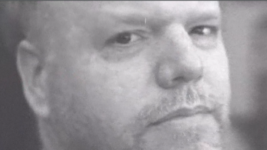Australian Government Talks Big About Protecting Whistleblowers, While Criminally Prosecuting Them

The South Australian District Court last year found that Richard Boyle was correct in blowing the whistle on the Australian Taxation Office over its breaching of a garnishee policy to dip into small business accounts to extract debts with the aim of bumping up figures for the end of financial year.
In then confirming this original decision on appeal last June, the Supreme Court made certain that despite Boyle being right to have exposed the practice, which was brought to an end and multiple inquiries went on to find was being applied unlawfully, yet he wasn’t covered in collecting his evidence.
This means that the Public Interest Disclosure Act 2013 (Cth) (PID Act), which ostensibly aims to protect public sector whistleblowers, is flawed, as any reasonable person would conclude that a law that protects those disclosing wrongdoing would also protect them in proving their case.
Attorney general Mark Dreyfus drafted the PID Act back in 2013, during his first stint as chief lawmaker, and when he was in opposition watching the Coalition pursue a series of high-profile whistleblowers cases in 2021, which included Boyle’s, he pledged he’d fix his laws if elected again.
But in terms of Boyle, the current attorney general is refusing to drop the prosecution of the ex-ATO employee, even though it is obvious that his laws have failed this innocent man, and it remains a mystery as to why Dreyfus wants to see Boyle punished in this manner.
A lack of movement at the station
As Labor was criticising the Coalition government in October 2021 over not having yet actioned 2016 Moss report recommendations to reform the PID Act, Dreyfus said that if in government, he’d action the “necessary improvements”, as he’d been aware “it was not a perfect scheme” on enactment.
However, since coming to office, Dreyfus has dragged his feet on the provision of greater protections for whistleblowers to the point that it now appears he has no real intention of creating a clear pathway for those seeking to end wrongdoing but rather he’s simply stalling on improving this area.
The AG determined to reform the PID Act in two rounds, which included preliminary measures to assist in the operations of the National Anti-Corruption Commission, and then he’d be introducing a comprehensive overhaul of the laws that have only served to fail whistleblowers in general.
The first round of NACC-facilitating amendments were passed in June 2023. Back then, politicians were still singing the praises of the federal watchdog, which operates behind closed doors, but since it decided to not pursue a Robodebt inquiry, it’s now been exposed as another toothless watchdog.
A November 2023 consultation paper on the second round of PID Act reforms actually contemplates extending “immunities to cover preparatory acts”, which is what the SA Supreme Court has decided Boyle is not covered for under the PID Act, and is now facing the rest of his life in prison in regard to.
So, again, the question must be asked why hasn’t Dreyfus intervened in Boyle’s matter if he’s contemplating a law that would ultimately see a person in his position absolved of any wrongdoing? And another question to ponder is will the AG even attempt to overhaul the PID Act this term?
Catch 22 prosecutions
Boyle lodged his public interest disclosure with the ATO on 12 October 2017. The agency head who received it was found not to have dealt with it appropriately. And as the practice continued, Boyle went to the ombudsman and then the press, with his revelations featuring in an April 2018 report.
Section 10 of the PID Act provides that an individual who makes a public interest disclosure “is not subject to any civil, criminal or administrative liability (including disciplinary action) for making the public interest disclosure”.
Yet, the court has found that the immunity from criminal liability does protect him in having gone to the ABC and exposed the tax office over its dipping into customer accounts when ATO policy didn’t permit it, but in terms of the acts he took to prepare his case, Richard is not protected.
Indeed, Boyle is now facing 24 criminal offences consisting of fairly minor crimes like using a mobile phone to take photos of taxpayer information, covertly recording conversations with former colleagues and uploading taxpayer information to his lawyer’s email account, which was deliberately never accessed.
Dreyfus, who in providing criminal immunity in an effort to protect whistleblowers in 2013, did so in such an ambiguous manner that the courts are able to interpret that it doesn’t cover basic preparatory acts in building a case.
And while the attorney general obviously couldn’t see this on drafting his laws in 2013, he’s definitely aware of this conundrum at present.
So, what the nation’s chief lawmaker is asking the public to accept is that Boyle did do the right thing, but because he didn’t have the foresight in 2013 to make a specific law to provide immunity for preparatory acts, of which he is now contemplating, the ex-ATO employee just has to suck it up.
Punishing insiders for speaking out
Boyle’s trial was supposed to commence next Monday. But his legal team has just filed for special leave to appeal to the High Court over the denial to extend PID Act criminal immunity to the preparatory acts of which federal Labor is now pursuing him over. So, his trial is now postponed.
However, the most bizarre aspect to Boyle’s case is, the attorney general could bring it to an end today, as he has the power to do so, and when Dreyfus took office in 2022, he did drop the high-profile case against Bernard Collaery, who’d assisted his client Witness K in blowing the whistle.
Section 71 of the Judiciary Act 1903 (Cth) provides that the attorney general can end any prosecution. But when pressed on the matter as to why he permitted Collaery to walk free but not McBride or Boyle, Dreyfus said the power is only for “very unusual and exceptional circumstances”.
So, it appears that Dreyfus has an exceptionally high bar when it comes to exceptional circumstances because the fact that he drafted dud laws a decade ago that have proven so flawed they can see a man who did the right thing facing the rest of his life in prison seems “very unusual” to most voters.







